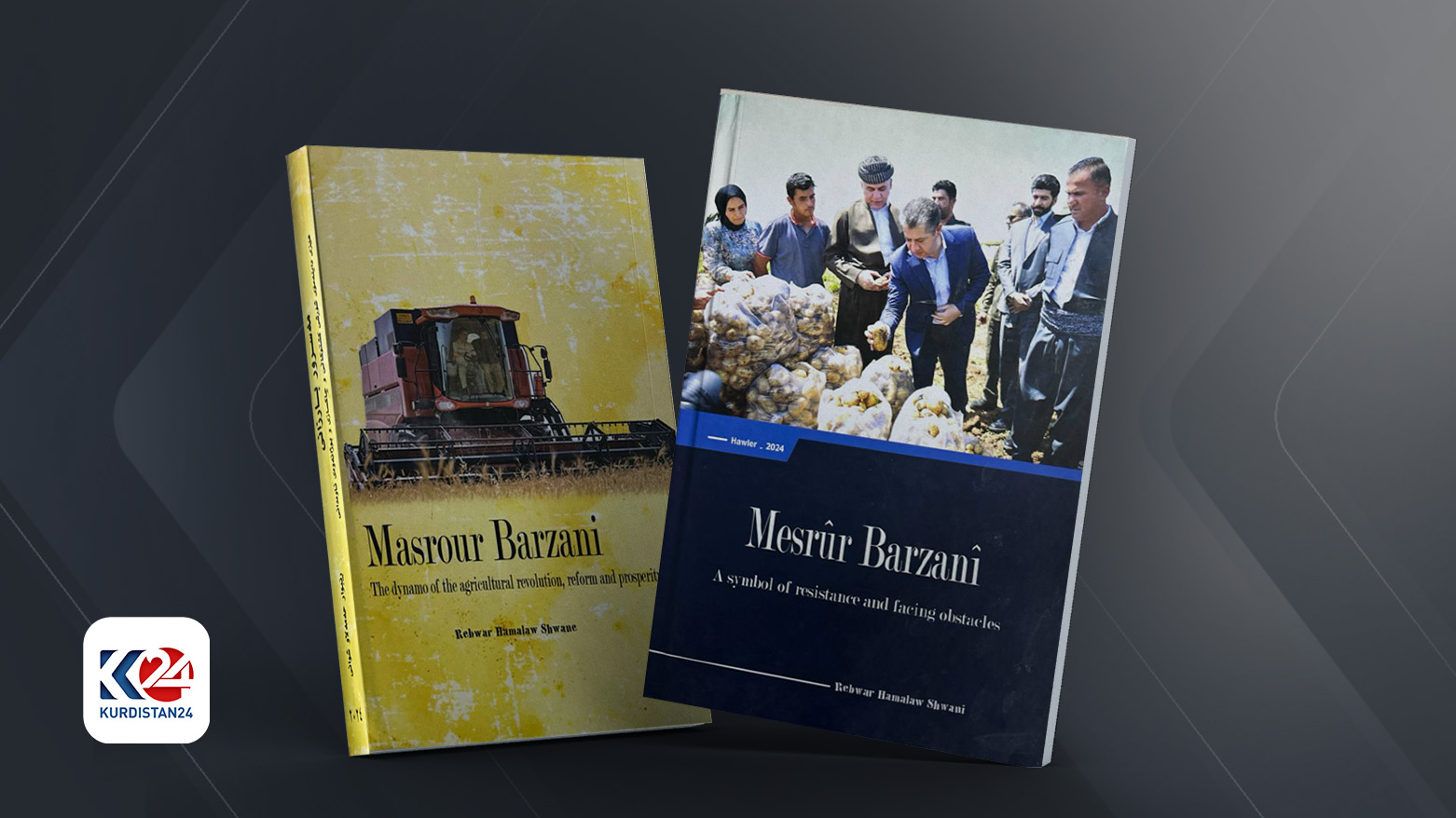Two books illuminate PM Masrour Barzani's leadership, governance
The first book offers an in-depth analysis of the Prime Minister's political strategy and personal fortitude, while the second book is a 478-page study of the PM's efforts in agricultural development, institutional reform, and economic rejuvenation.

Dec. 16, 2024
ERBIL (Kurdistan24) - In a literary contribution to understanding Kurdistan Region's contemporary political landscape, two books authored by Rebwar Hamlaw Shwani provide an in-depth study of Prime Minister Masrour Barzani's political journey, administrative achievements, and transformative leadership during challenging times.
The first book, titled "Masrour Barzani: A Symbol of Resilience and Facing Challenges," offers an in-depth analysis of the Prime Minister's political strategy and personal fortitude.
The author explores Barzani's approach to navigating complex political obstacles, demonstrating his ability to make critical decisions that potentially shape Kurdistan's future.
Moreover, Shwani acknowledges that a single book may not fully capture Barzani's comprehensive worldview since becoming Prime Minister.
However, the text compiles a collection of essays that highlight the Prime Minister's dedication to his homeland, showcasing his commitment to effective governance, problem-solving, and advancing Kurdistan's infrastructure across multiple sectors.
Recommended as essential reading for researchers and students, the book meticulously documents the work and strategic steps of the Prime Minister and the Ninth Cabinet of the Kurdistan Regional Government.
The second book, "Masrour Barzani: The Dynamo of Agricultural Revolution, Reform, and Prosperity," is a 478-page study of the Prime Minister's efforts in agricultural development, institutional reform, and economic rejuvenation.
This work delves into Barzani's strategic thinking and concrete actions regarding crucial economic and agricultural sectors in Kurdistan.
The author emphasizes that beyond being a prominent political figure, Barzani has taken significant strides during his five-year tenure in confronting corruption and addressing systemic inequalities.
Despite numerous challenges and crises facing the Ninth Cabinet, the book underscores that Barzani's primary political priority was implementing practical reforms across all domains.
Though the path was challenging, his resilience, self-confidence, and faith in the Kurdish people enabled him to advance development programs, create more employment opportunities, and enhance agricultural and economic sectors.
Again recommended for researchers and students, the book provides a detailed and authentic account of the Prime Minister's work and the initiatives of the Ninth Cabinet of the Kurdistan Regional Government.